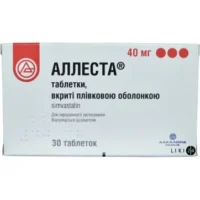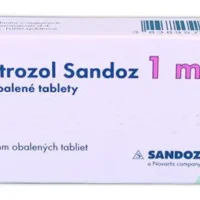Description
Metoclopramid (Metoclopramide) Tablets 10 mg. №50
Ingredients
Each tablet contains 10 mg of Metoclopramide.
Dosage
The usual adult dose is 10-15 mg taken orally 30 minutes before meals and at bedtime.
Indications
- Metoclopramide is indicated for the treatment of gastroesophageal reflux disease (GERD).
- It is also used in diabetic gastroparesis.
- It helps in managing nausea and vomiting.
Contraindications
Do not use Metoclopramide if you have a history of seizures, pheochromocytoma, or gastrointestinal obstruction.
Directions
Take Metoclopramide exactly as prescribed by your healthcare provider. Do not exceed the recommended dose.
Scientific Evidence
Metoclopramide increases stomach and intestinal movement, aiding in easier food passage through the digestive system. It also affects the vomiting center in the brain, helping to manage nausea and vomiting.
Studies support Metoclopramide’s efficacy in GERD and diabetic gastroparesis. Research in the Journal of Gastroenterology highlighted its symptom improvement in GERD and promotion of gastric emptying in gastroparesis patients.
Additional Information
- Inform your healthcare provider about other medications before starting Metoclopramide due to potential interactions.
- Common side effects include drowsiness, restlessness, and extrapyramidal symptoms.
- Clinical trials indicate good tolerability at recommended doses, but adherence to dosage and treatment duration is crucial to minimize side effects.





